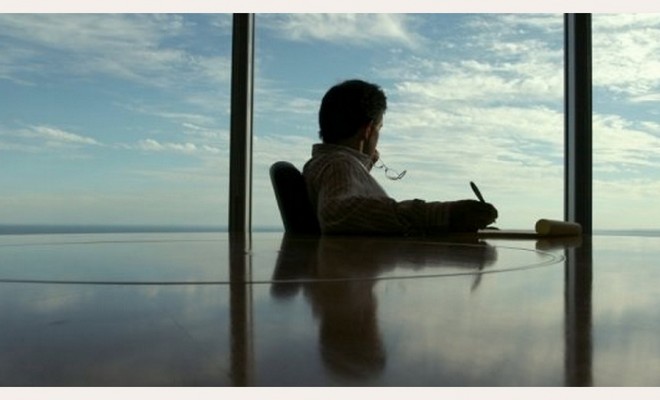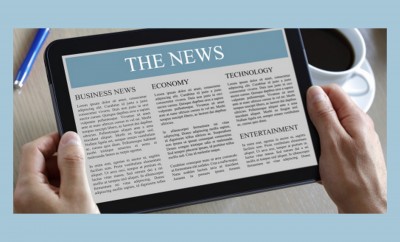
Stop Consuming News
“The goal of media is to make every problem, your problem.”
— Naval Ravikant
In 2022 I stopped reading the news.
As I don’t have social media, I’m 99% disconnected from current events.
According to my friends, I’m “living under a rock.” (Their words not mine).
I understand that many people believe it’s important to keep up to date with current affairs. If that belief serves you, by all means, continue.
But, cutting out news has helped me reclaim my attention, improved the quality of information I consume, made me more optimistic, and reduced stress.
The Danger of the News
“The measure of a commercially successful newspaper is not simply how well it reports the big events, but what it does when there are no dying statesmen, bloodthirsty desperadoes, or heinous crimes to write about.
Hearst succeeded in New York not only because he knew how to report the big stories, but because he was a master at constructing news from nothing.”
— The Chief: The Life of William Randolph Hearst
“If you diet, invest, and think according to what the “news” advocates, you’ll end up nutritionally, financially, and morally bankrupt.”
— Naval Ravikant
We consume news because we want to be informed. Yet, the news doesn’t aim to make us informed. The news aims to make us inflamed.
Incentives are misaligned.
News stations are profit-seeking like any other company.
If you’re not paying for news, advertisers are. No different from HBO, news companies get paid by selling people’s attention to advertisers.
The media is paid to get your attention. The viewer is not the customer, they’re the product.
In this game, views become the focus. More eyeballs mean more revenue. Incentives change. To increase views, as Shane Parrish writes, “the more controversy, the more share-ability, the more enraged you become, the better”.
A journalist, exposing what makes something newsworthy, explained how news stations manipulate information to make it more interesting.
News stations think through:
- How do we make something odd or unusual or bizarre?
- How do we add conflict?
- How do we make something more local to people?
- How do we make it more recent?
There’s a formula for what creates news.
The news perpetuates a culture of “tune in, don’t miss out, someone knows something you don’t, follow this or you’ll be misinformed, oh wait, look at this!”
Their intention is to keep attention. Not to disseminate truth.
Your Information Diet Matters
“To find quality information, you have to rebel against the incentives of mass media.”
— David Perell
Like food, you should be hyper-conscious of what you put in your mind.
Information and food consumption are perfect metaphors. You want to consume more nutrients and less junk.
David Perell tells a story of a time he hopped into an Uber with friends and watched them scroll their social media feeds with ferocious intensity. “One thing stuck out”, David writes, “the people in front of me only consumed content created within the last 24 hours… Like hamsters running on a wheel, we live in an endless cycle of ephemeral content consumption. A merry-go-round that spins faster and faster but barely goes anywhere.”
How can the best information to consume all be created in the past 24 hours?
It isn’t.
“News is, by definition, something that doesn’t last,” Shane Parrish explains. “It exists for only a moment before it changes.”
It’s not relevant in the long run. As a result, you spend time filling your head with ideas that were written hastily and expire quickly.
“To be completely cured of newspapers,” Nassim Taleb writes, “spend a year reading the previous week’s newspapers.”
To get healthier, improve your diet. To get smarter, improve your information diet.
Cutting Out the News
“Most of what you read online today is pointless.
It’s not important to living a good life. It’s not going to help you make better decisions. It’s not going to help you understand the world. It’s not dense with information. It’s not going to help you develop deep and meaningful connections with the people around you.”
— Shane Parrish
For years, I was a news junkie. I spent hours every day reading the Wall Street Journal, Financial Times, Bloomberg… The list goes on.
Then I began to notice something. My idols—Tim Ferriss, Naval Ravikant, Alex Hormozi, David Perell, and Shane Parrish—avoided the news like the plague.
They were extremely selective about their information diet.
“I never watch the news,” Ferriss writes, “and have bought one single newspaper in the last five years.”
“[The media’s] intention is not to educate me their intention is to make the world’s problems my problem” Alex Hormozi notes, “and I have enough problems and so I don’t need to add more that are irrelevant to me to my list.”
Shane Parrish hates the news more than Tom hates Jerry.
Here’s the kicker: They all run multi-million dollar businesses and are prolific business people.
In 2021 I weaned myself down to reading The Morning Brew for five minutes each day. Then, I decided to stop reading any news while I was vacationing in Costa Rica and didn’t miss it at all.
The news didn’t add value to my life, but it certainly could make it worse.
Burying my head in the sand? Perhaps. But I can’t control any of it. Why would I voluntarily add stress to my life over things I can’t control?
On his deathbed, Hans Rosling wrote Factfulness a book on how we’re misled by the news. “It turns out that the world, for all its imperfections,” Hans writes, “is in a much better state than we might think.”
The media cherry-picks the top 0.1% of the worst things that happen in the entire world and force-feeds it to the masses every day. They ignore the bright spots and the improvements and the optimism. It doesn’t sell. It’s no wonder the world seems like it’s getting worse.
I decided I don’t have to subscribe to it.
Where do we go from here?
“Rarely do we stop to ask ourselves questions about the media we consume: Is this good for me? Is this dense with detailed information? Is this important? Is this going to stand the test of time? Is the person writing someone who is well informed on the issue?”
— Shane Parrish
The scary thing about the modern media environment: You only realize how much noise it was making until you turn it off.
In my experience, avoiding news means avoiding spikes of stress over things I can’t control.
I replaced news with timeless content. I’ve returned to old books like Meditations, old ideas like desire, and old writers like Cervantes.
My information diet improved and with it my thinking, decision-making, and relationships.
“Few things are as important to your quality of life,” Winifred Gallagher writes, “as your choices about how to spend the precious resource of your free time.”
Πηγή: thomasdixon.substack.com




